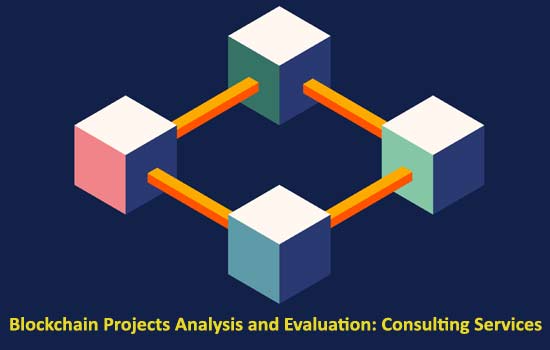Blockchain Projects Analysis and Evaluation: Consulting Services

Blockchain technology has rapidly evolved from a niche concept to a powerful tool that’s reshaping industries across the globe. From finance to supply chain management, the potential applications of blockchain are vast and varied. However, with this growing popularity comes the challenge of evaluating blockchain projects effectively.
Whether you’re a business looking to implement blockchain solutions or an investor considering a blockchain startup, understanding the ins and outs of these projects is crucial. This is where blockchain consulting services come into play.
Overview of Blockchain Technology
Blockchain is essentially a decentralized digital ledger that records transactions across multiple computers so that the record cannot be altered retroactively. This technology gained mainstream attention with the rise of Bitcoin in 2009, but its applications go far beyond cryptocurrency.
Today, blockchain is being used to improve transparency, security, and efficiency in various sectors, including healthcare, real estate, and even voting systems.
Importance of Blockchain Project Evaluation
With the surge in blockchain projects, it’s becoming increasingly important to distinguish between viable solutions and those that are more hype than substance.
Analyzing and evaluating these projects is not just about understanding the technology; it’s also about assessing the business model, team expertise, and market potential. This comprehensive evaluation can help businesses and investors avoid costly mistakes.
Understanding Blockchain Projects
Understanding the key components of a blockchain project is essential for evaluating its functionality, security, and scalability. Blockchain consulting services can help you navigate these elements to ensure your project’s success. The core components include consensus mechanisms like Proof of Work (PoW) and Proof of Stake (PoS), which determine how participants agree on the validity of transactions.
Additionally, smart contracts play a crucial role, as they are self-executing contracts with the terms embedded in code, popularized by platforms like Ethereum. The governance model, which can range from community consensus to formal structures, also significantly influences a project’s long-term viability.
Blockchain projects can also be categorized by their structure, such as public or private blockchains, and by their level of access, like permissioned or permission less blockchains. Public blockchains, like Bitcoin, are open to anyone and maintained by a decentralized network, while private blockchains are restricted to a specific group, offering more control and privacy.
Blockchain consulting services are invaluable in helping businesses understand these distinctions and choose the right blockchain type that aligns with their goals, ensuring a balance between control, transparency, and decentralization.
The Need for Blockchain Consulting Services
Why Businesses Need Blockchain Consulting
Blockchain is a complex technology with a steep learning curve. For businesses, the challenge lies not only in understanding how blockchain works but also in figuring out how to integrate it into their operations effectively. This is where blockchain consulting services prove invaluable.
Consultants help businesses identify the right use cases for blockchain, design appropriate solutions, and implement them efficiently.
Challenges in Evaluating Blockchain Projects
Evaluating a blockchain project involves assessing its technical, business, and regulatory aspects. However, many businesses lack the expertise to conduct such a comprehensive evaluation. For instance, understanding the security implications of a particular consensus mechanism or the scalability of a blockchain platform requires specialized knowledge.
Moreover, the regulatory landscape for blockchain is still evolving, adding another layer of complexity to the evaluation process.
Key Aspects of Blockchain Project Evaluation
Technical Feasibility
Assessing the technical feasibility of a blockchain project is crucial to determine whether it can meet the intended goals.
Scalability
One of the biggest challenges facing blockchain projects is scalability. For example, Bitcoin can process only about 7 transactions per second, which is far less than the thousands of transactions processed by traditional payment networks like Visa. Evaluating whether a blockchain project can scale to meet growing demand is essential.
Security
Security is a fundamental concern in any blockchain project. The immutability of blockchain records is one of its biggest advantages, but it also means that any vulnerability in the system can have severe consequences. A thorough security audit, including code reviews and penetration testing, is a critical part of the evaluation process.
Interoperability
Interoperability refers to the ability of different blockchain systems to work together. As the number of blockchain platforms grows, ensuring that they can communicate and interact with each other becomes increasingly important. Evaluating a project’s interoperability features can determine its long-term viability.
Business Model Viability
A blockchain project may be technically sound, but without a viable business model, it is unlikely to succeed.
Market Demand
Market demand is a key indicator of a project’s potential success. For instance, the rise of decentralized finance (DeFi) projects in 2020 was driven by a strong demand for financial services that operate outside traditional banking systems. Evaluating whether there is a genuine market need for the project’s solution is essential.
Revenue Streams
Understanding how a blockchain project plans to generate revenue is crucial. Some projects rely on transaction fees, while others may have more innovative models, such as tokenomics, where users are incentivized to participate in the network. Evaluating these revenue streams helps in determining the project’s financial sustainability.
Regulatory Compliance
Blockchain projects must navigate a complex and often uncertain regulatory landscape.
Global vs. Local Regulations
Regulations can vary significantly from one jurisdiction to another. For example, while some countries like Malta and Switzerland have adopted blockchain-friendly regulations, others are more restrictive. A thorough evaluation of the regulatory requirements in the target markets is crucial to avoid legal pitfalls.
Team Expertise and Experience
The success of a blockchain project often hinges on the expertise and experience of the team behind it. Evaluating the team’s background, previous projects, and industry reputation can provide insights into the project’s likelihood of success.
Final Thoughts on Choosing the Right Consulting Partner
Choosing the right blockchain consulting partner is crucial to the success of your project. Look for consultants with a proven track record, deep industry knowledge, and a comprehensive approach to evaluation and implementation. With the right support, you can unlock the full potential of blockchain technology and achieve your business goals.
Follow – https://bitcointodays.com for More Updates




